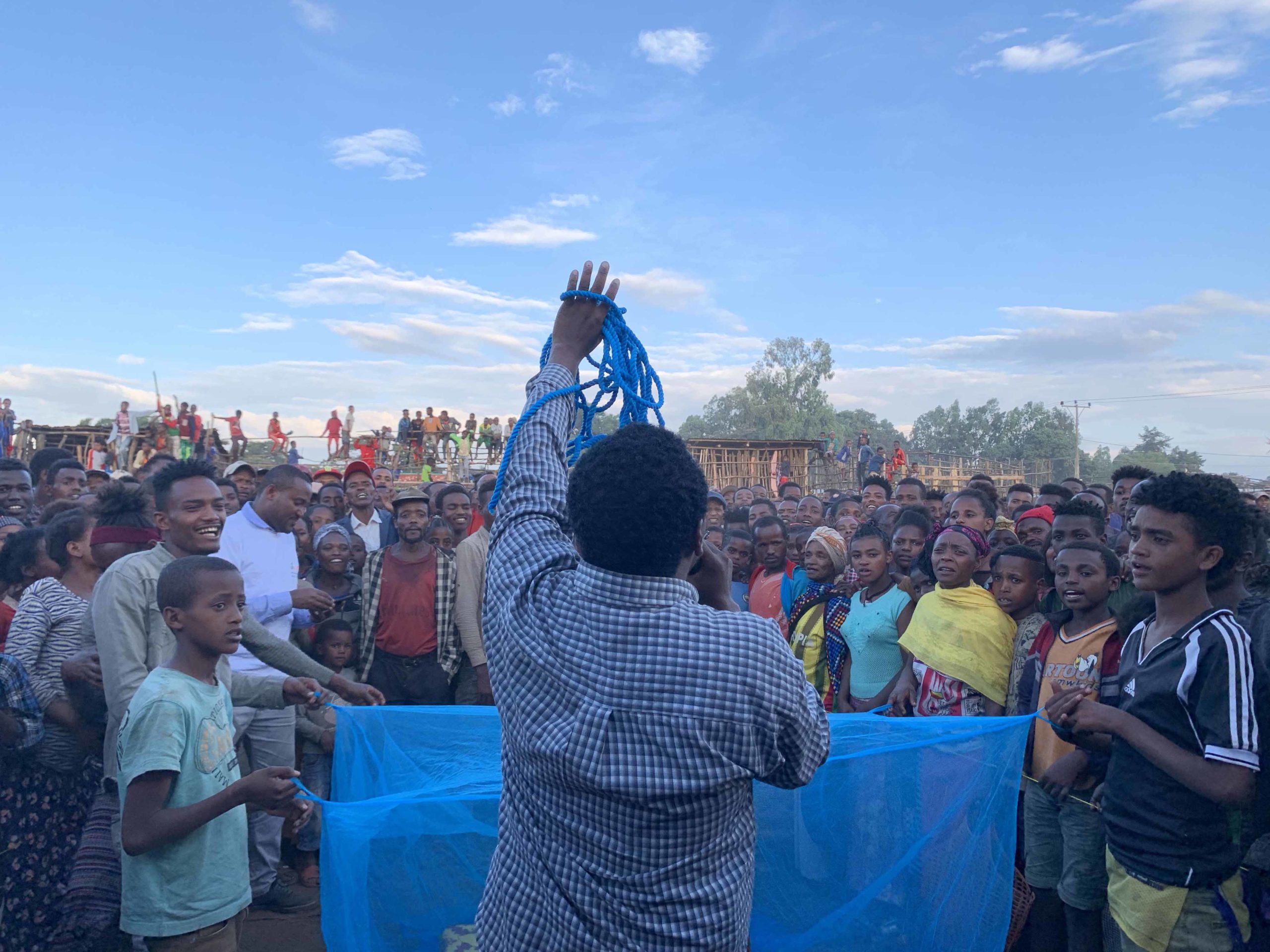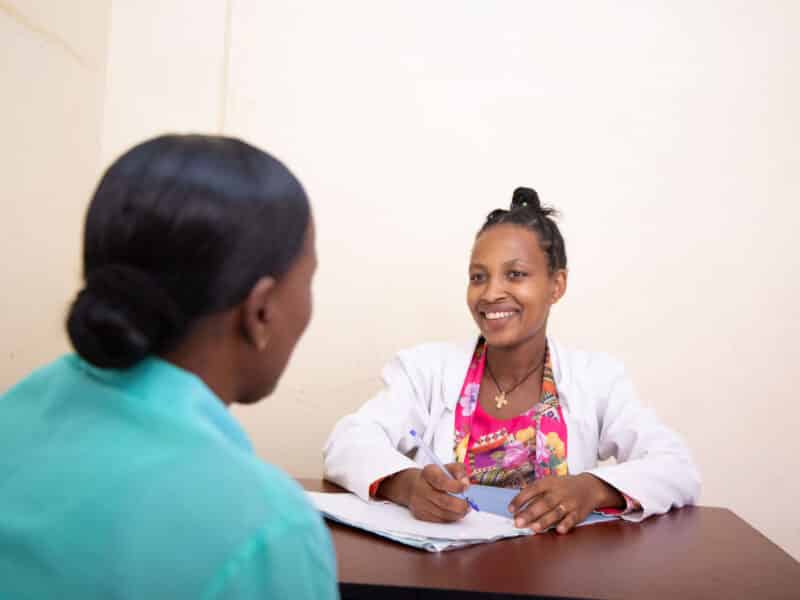The Johns Hopkins Center for Communication Programs has been turning market days into malaria education days in several regions of Ethiopia, bringing its “malaria roadshow” into town to spread the word about malaria prevention and treatment.
The open-air roadshows, organized by CCP’s USAID/PMI-funded Communication for Health project, use an entertaining and interactive format to reach rural communities. While the Ethiopian government distributes long-lasting insecticide treated mosquito nets to households across the country every three years, the number of people who actually sleep under the nets is low. One in four Ethiopians don’t know that malaria is spread by infected mosquitoes, according to the 2015 Malaria Indicator Survey, and only 40 percent regularly sleep under a protective net.
“The malaria roadshow has addressed behavioral challenges including misconceptions related to cultural issues on malaria prevention and treatment,” says Bayissa Urgessa, CCP’s regional manager. “It has given us a chance to inform a large number of communities and students so that they help their families hang their nets properly and create awareness on utilization and more.”

The events have been happening in 45 woredas (districts) in four separate regions of Ethiopia, with one held in a woreda’s market and another in a local school. Each show drew more than 1,500 people, who took part in different activities, including Q&A sessions, net hanging demonstrations and music and dance competitions to make the events fun and memorable.
Mekdes Ibabu, a young woman who attended one of the roadshows, says that what she learned will change how everyone in her household works to prevent malaria.
“We can prevent malaria by properly using a bed net,” she says. “For example, in our house, only my parents sleep under the bed net. Starting today, me and my sister will hang our own bed nets and sleep under them.”
Another attendee, Ato Mekuanint, knows what malaria feels like – the headaches, the joint pain – after contracting it while traveling.
“If you don’t properly put up the bed net or if it has holes it is, that’s when the mosquito gets in,” he says. “There were a few things I was doing wrong, but now I know what I need to do and I will do them in the future. I will also share what I’ve learned with others.”
Communication for Health planned the shows with the help of local and regional government officials in order to give them the ability to conduct their own roadshows in other woredas and regions. “This way, the roadshows become sustainable and community leaders will be able to plan future events to spread the word of malaria prevention even further,” says CCP’s Sanjanthi Velu, the Ethiopia team leader.
The Amhara regional office is already planning roadshows in 53 additional woredas, while the Oromia region has adopted the approach and is replicating it in 38 additional woredas.
Communication for Health, meanwhile, is developing a user-friendly guide for practitioners interested in organizing roadshows to communicate effective health messages and create a unique experience for audiences.
In a study conducted by the project in 2017, Communication for Health found that some of the reasons people didn’t regularly use their mosquito nets included a lack of knowledge about malaria transmission as well as limited household skills in hanging and using nets and how to care for them.
The project has conducted short pre- and post-assessments of the events to determine how much people know about malaria going into the roadshows and how much they know on the way out. The roadshow participants showed significant improvement (more than 10 percent) on five knowledge indicators: causes of malaria, how to prevent it, who should get priority in using the available nets if there is a shortage, how often bed nets should be used and how to use a bed net.





